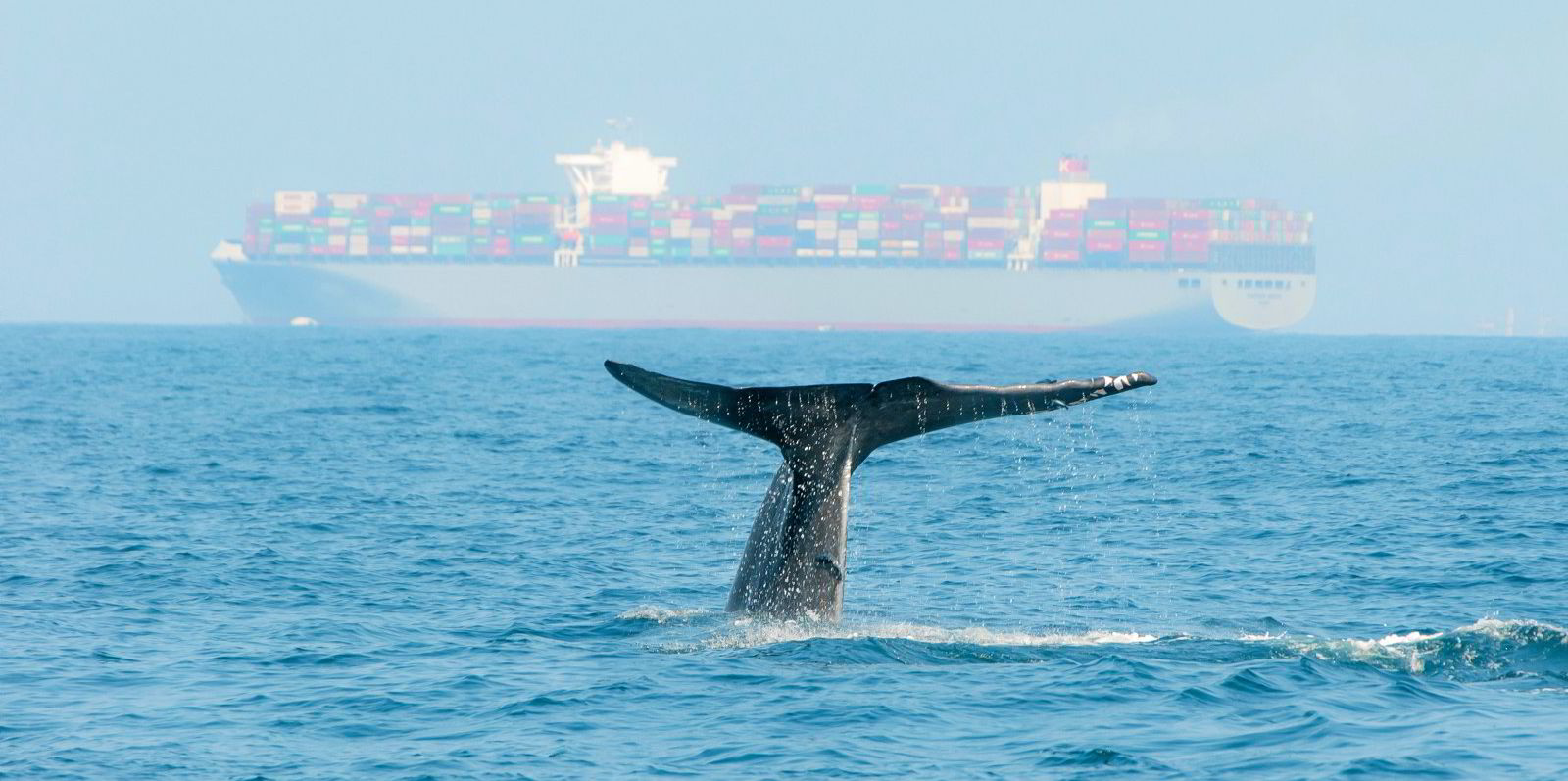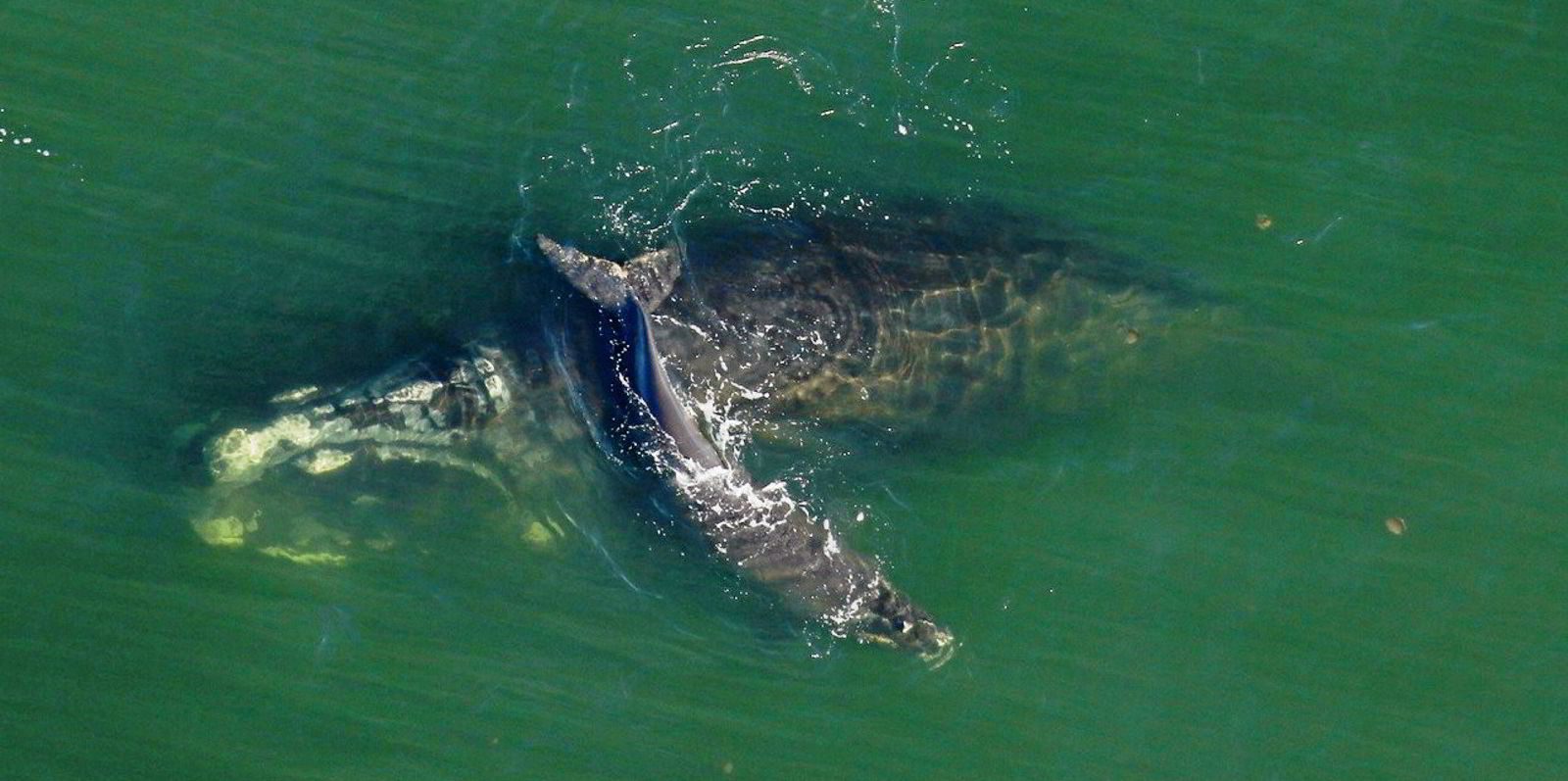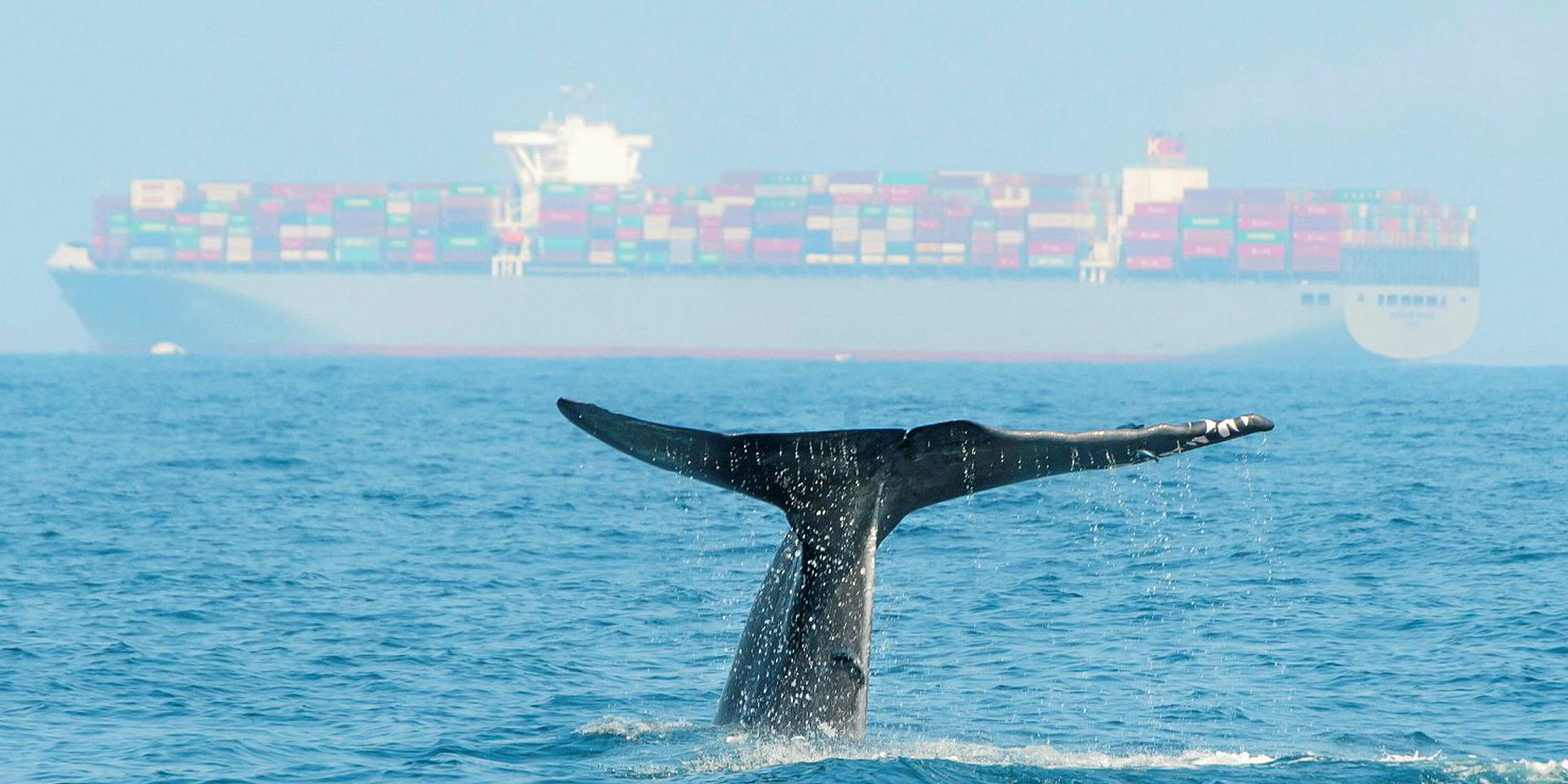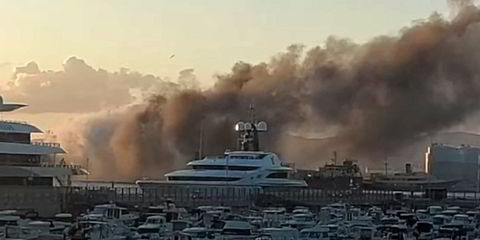Mediterranean Shipping Co (MSC) is moving vessels away from Sri Lanka to protect endangered blue whales.
The Swiss liner giant said it is encouraging rivals to take a more southerly route and avoid official shipping lanes around the island.
MSC called this an important step in protecting the whales and other cetaceans such as dolphins that live and feed in coastal waters.
Navigation has been modified in line with the advice of scientists and other key maritime actors, it said.
The new course is 15 nautical miles (28 km) south of the current traffic separation scheme.
An exception has been made for vessels embarking and disembarking for safety reasons in Galle, including in case of adverse weather.
Additionally, smaller feeder ships sailing around the Bay of Bengal will reduce their speed to less than 10 knots in this area.
The area off southern Sri Lanka is one of the busiest shipping lanes in the world and is inhabited by large populations of cetaceans.
Simulations have shown that moving the official shipping lane 15 nautical miles to the south could reduce the strike risk to blue whales by as much as 95%.
No concerted action yet
“However, despite years of advocacy by scientists, the shipping industry and NGOs, the boundaries of the official shipping line have not been reassigned to reduce the risk of ship strikes on cetaceans,” MSC said.
The owner takes various measures to protect marine wildlife, including adapting service networks to keep away from designated whale breeding and feeding grounds, and reducing speed and re-routing ships to avoid marine wildlife populations.
Stefania Lallai, vice president of sustainability at MSC, said: “We believe that the commercial shipping sector has an important role to play in protecting cetaceans, specifically in helping to reduce the risk of ship collisions with whales.
“MSC is proud to rank at or near the top of whale safety shipping rankings. However, we are not at all complacent.”
Lallai said the group wants to raise awareness of the issues and encouraging collaboration between industry, scientific bodies, civil society and governments.
In January, it became the first major shipping line to re-route its ships on the west coast of Greece to reduce the risk of collision with endangered sperm whales in the Mediterranean.






